Are you passionate about making a difference in your community? We're excited to share an incredible opportunity to support a housing project that aims to provide safe and affordable homes for those in need. By coming together as sponsors, we can help transform lives and create a lasting impact in our neighborhood. We invite you to read more about this vital initiative and discover how you can get involved!

Project Overview
The housing project in Springfield aims to provide affordable homes for low-income families, enhancing community development and stability. Located on Maple Street, the initiative encompasses 50 units designed to accommodate families of varying sizes, from one-bedroom apartments to three-bedroom townhouses. The project includes essential amenities such as community gardens, playgrounds, and support services for residents, promoting a supportive living environment. Construction is set to begin in September 2024, with a projected completion date in December 2025. Funding requirements amount to $2 million, sought through community sponsorships and grants, to ensure a sustainable and impactful development. Organizations supporting this initiative can play a crucial role in fostering social equity and improving living conditions for families in need.
Sponsorship Benefits
A housing project sponsorship can greatly enhance community development initiatives while providing substantial benefits to sponsors. Companies involved in such projects can gain visibility through branding opportunities, as their logos may be displayed on promotional materials, event signage, and community outreach programs. Taking part in local initiatives strengthens public relations, fostering goodwill among residents in neighborhoods like Riverside and Maple Grove. Sponsors can also enjoy tax deductions, as charitable contributions often qualify for tax breaks under local laws. Furthermore, aligning with housing projects demonstrates corporate social responsibility, appealing to consumers prioritizing ethical practices. Engaging in these community-driven endeavors can lead to increased customer loyalty and potential partnerships with local businesses.
Target Audience
The target audience for a housing project sponsorship request typically includes local businesses, philanthropic organizations, government agencies, and community leaders. Local businesses, such as construction firms or real estate developers, often look for opportunities to support community development while enhancing their corporate social responsibility profile. Philanthropic organizations, including foundations dedicated to housing initiatives or local charities, seek ways to increase their impact on social issues. Government agencies may also be interested, particularly those focused on urban development, affordable housing, or economic growth. Community leaders, including elected officials or influential activists, can serve as advocates for the project and may possess connections to potential sponsors. Engaging this diverse audience effectively involves highlighting the project's benefits, such as improved living conditions, community revitalization, and potential economic impact.
Sponsor Recognition
Local housing projects often seek sponsorship for construction materials and funding. Effective sponsor recognition can significantly enhance community engagement and brand visibility. Incorporating sponsorship logos on project banners, pamphlets, and social media promotions can ensure maximum exposure. Event sponsorship opportunities, such as groundbreaking ceremonies or community outreach days, provide direct interaction with residents and stakeholders. Recognizing sponsors in press releases and at public meetings can also amplify their commitment to social responsibility. Tailored recognition packages may involve features on project websites and newsletters, reaching a broad audience of local stakeholders and potential clients.
Call to Action
A housing project aimed at providing affordable living spaces for low-income families in urban areas requires immediate sponsorship support. The initiative, named "Home for All," seeks to construct 100 units in downtown Chicago, where over 25% of residents live below the poverty line. The project intends to offer quality housing, sustainable designs, and community resources. Local organizations have committed to supporting this initiative, yet an additional $500,000 is urgently needed to cover construction costs, utilities, and essential services. Collaborating with leading corporations or philanthropic entities can significantly impact community well-being and promote social responsibility in the housing sector. Your sponsorship can transform lives; now is the time to take action and help build a brighter, more inclusive future.


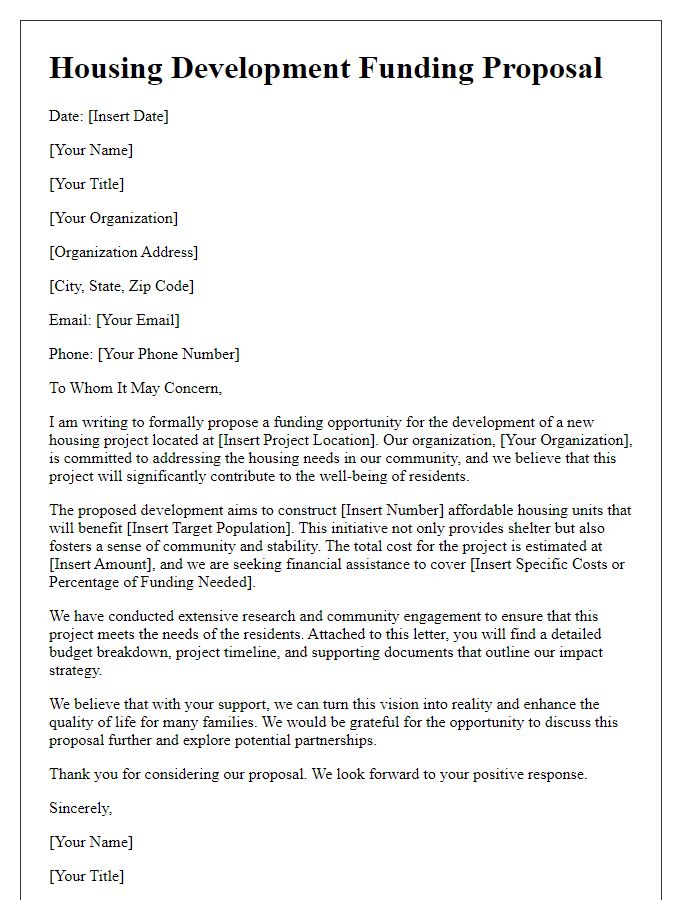
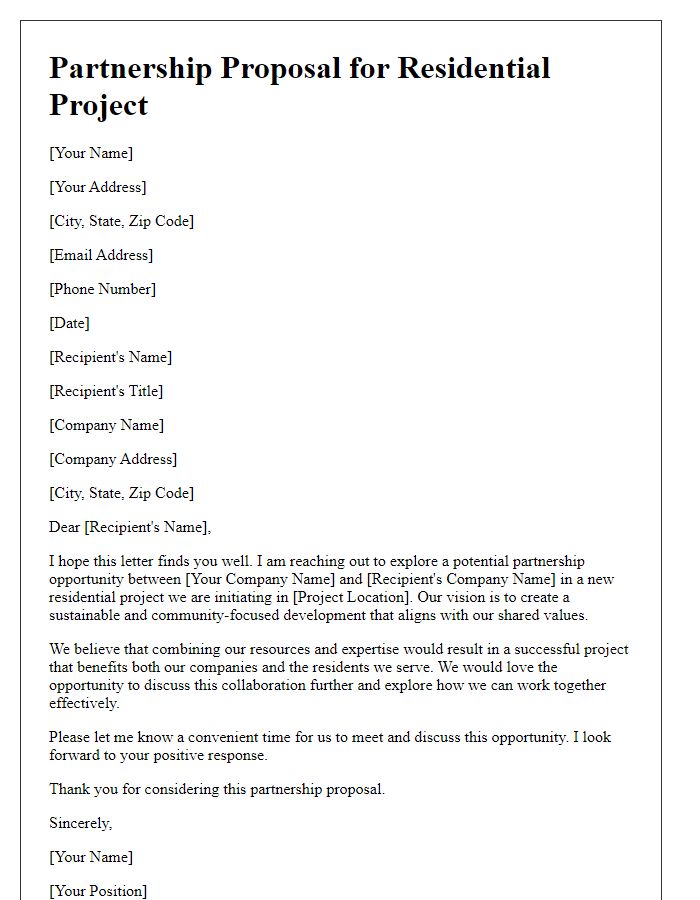
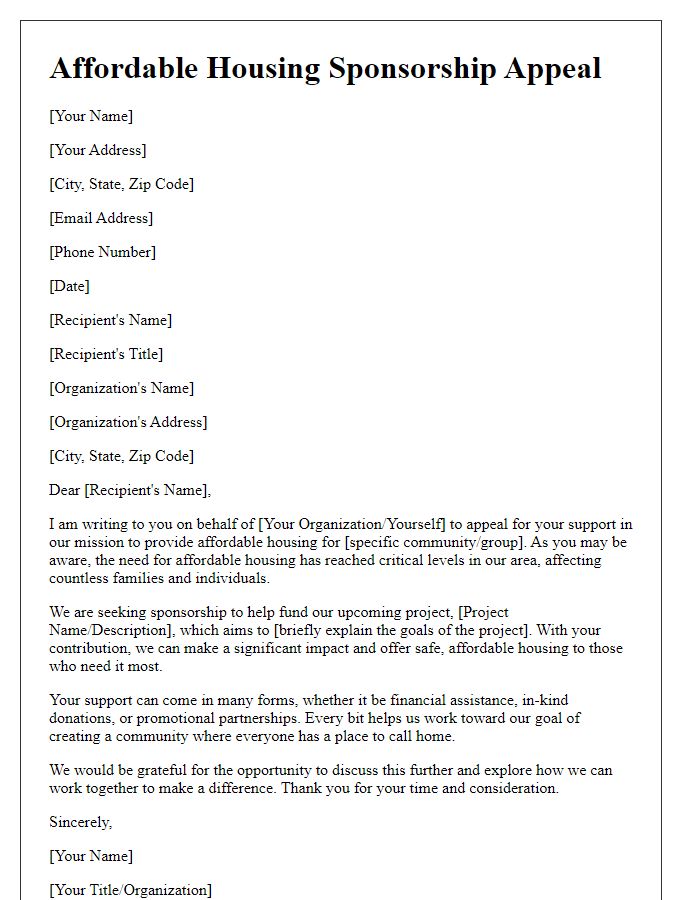
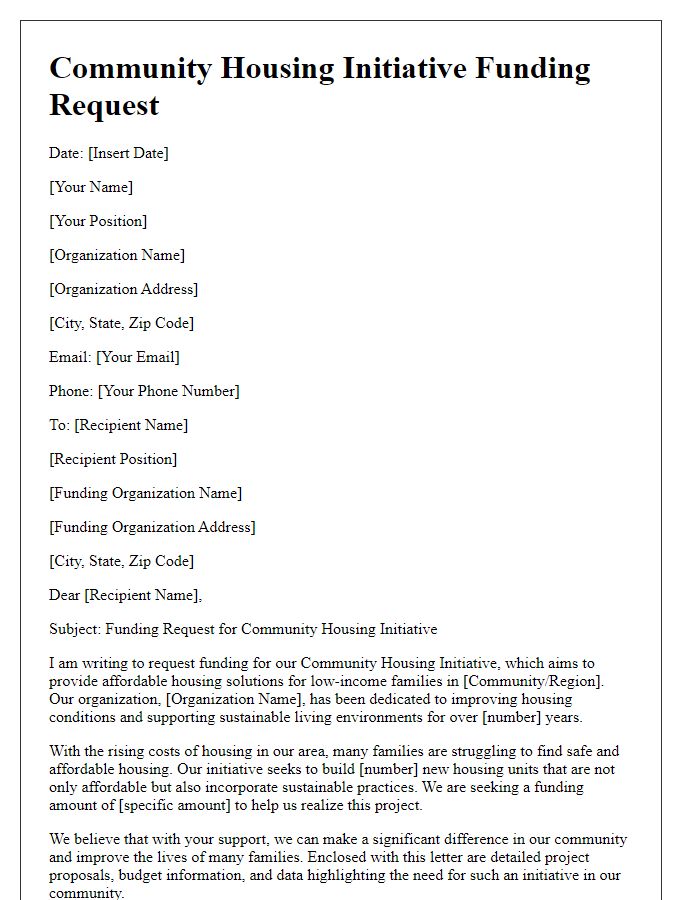
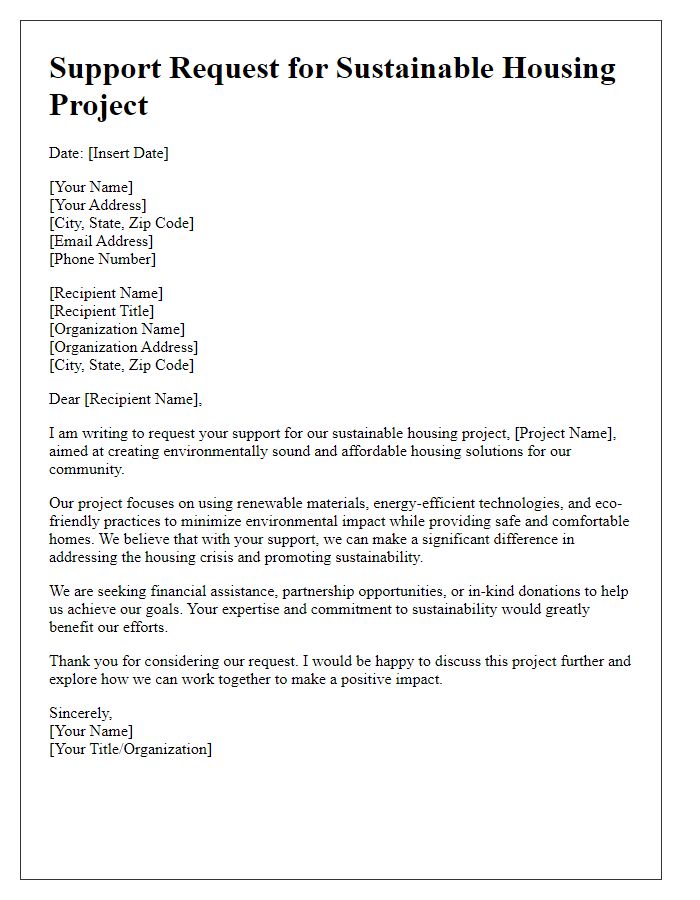
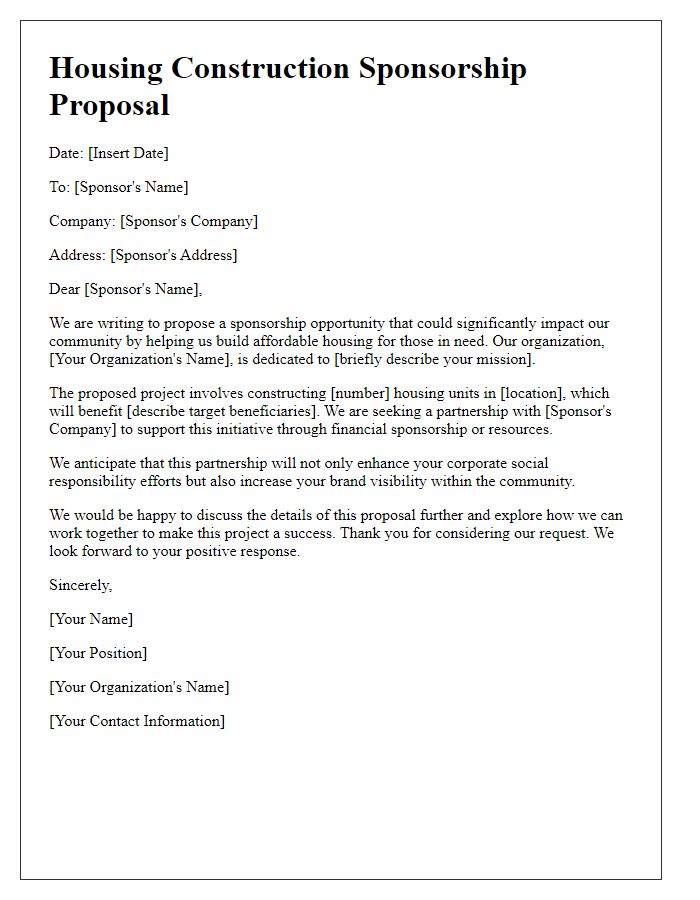
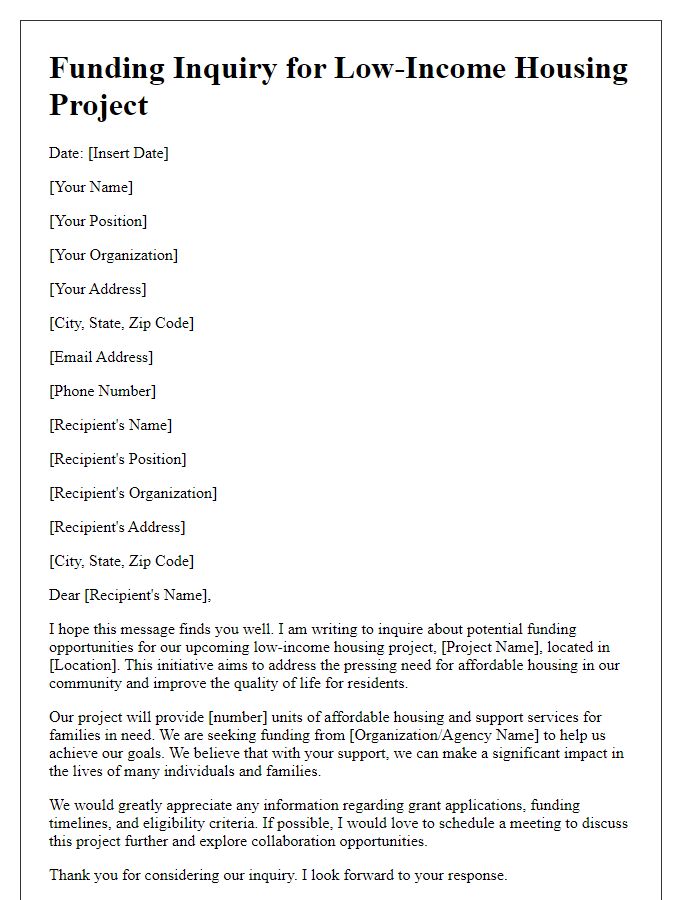
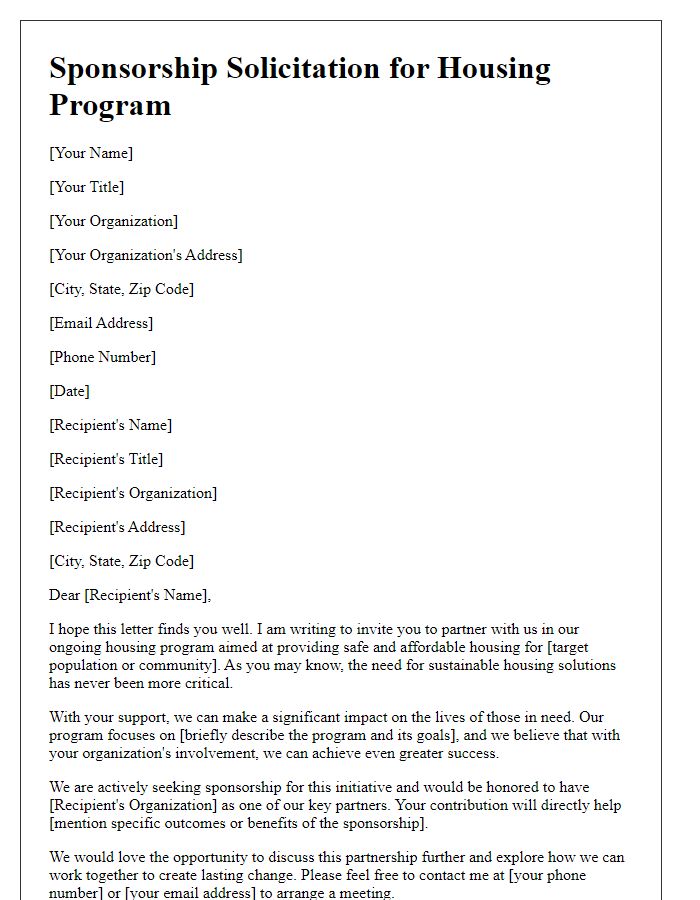
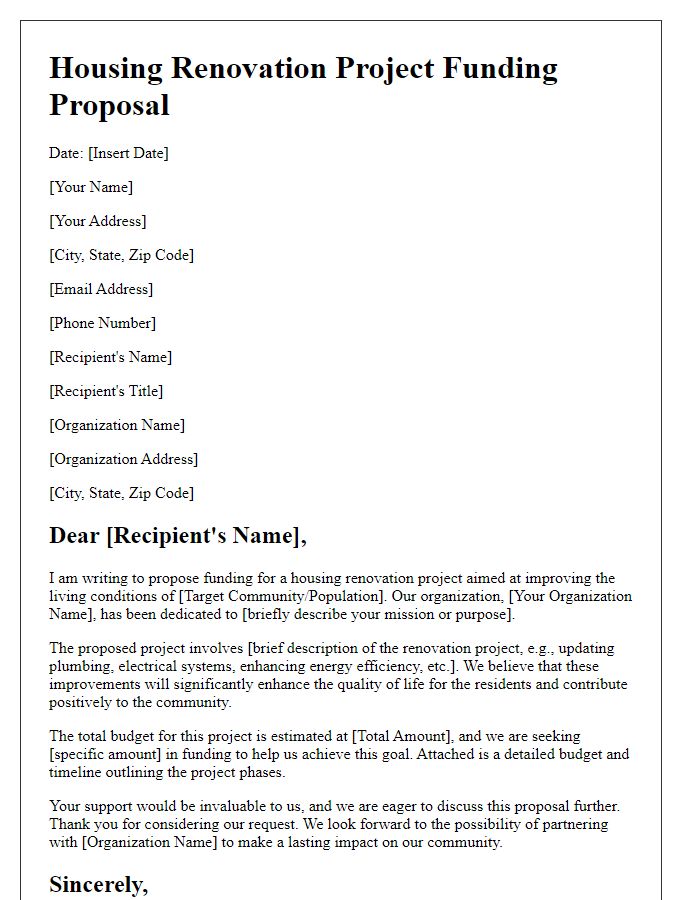


Comments